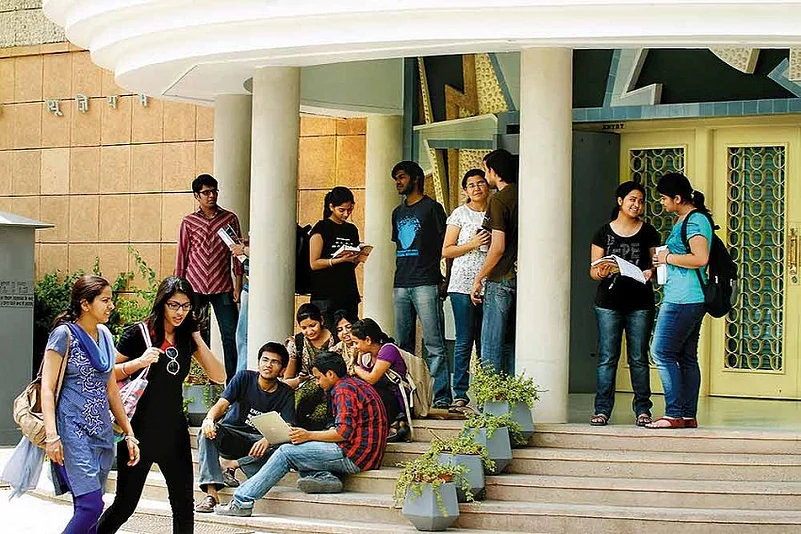Unveiled by the Union Finance Minister Nirmala Sitharaman earlier this month, the Education Budget reveals three dominant themes: vocationalisation, digitization, and globalisation.
Plans include online programmes to be offered by leading institutions of higher education, a National Police University and a National Forensic University. Also in the making is a bridge course to meet the demand for teachers, nurses and other paramedical staff going overseas, and a common eligibility test for all non-gazetted government positions.
The other goal highlighted by both the Finance and the HRD ministries is that of expanding foreign investment in Indian higher education, by way of drawing more foreign students to this country. The ‘Study in India’ programme will administer an Indian-style SAT exam in Asian and African countries that will determine the eligibility of candidates who will study and receive financial support in India.
The three major focus areas are vocationalisation, digitization, and enhanced foreign direct investment in education in India. These are all necessary measures, and certainly in keeping with the spirit of the times. The caveat is that these measures should not be privileged at the expense of the core concerns of higher education, including aspects that have already been part of India’s traditional strengths – some of which have come under threat lately.
A call for a sharpened focus on professional and vocational training as a corrective to the predominant system of arts and science education – which the nation inherited as a colonial legacy – has long been a sharp narrative in Indian higher education circles. Such, for instance, is the bid put forward by Pawan Agarwal in his significant book, Indian Higher Education: Envisioning the Future, as a means to giving Indian higher education a more “instrumental” or “useful” orientation. In doing so, Agarwal missed the real problem – the mechanical model of arts and science education that is a colonial legacy of a system to train British-era clerks – that is as far removed from innovative and high-quality liberal arts education as it is from cutting-edge forms of professional degree programmes.
In recent years, governments worldwide, especially after they’ve become more conservative, have urged a relentless instrumentalization of education. I had tried to point this out three years ago, with Brexit and a new American Presidency still new on the horizon, when Donald Trump simply came across as the culmination of a long line of hardline Republicanism that attacked any programmes of higher education that was not narrowly instrumental. With vocal members of the party armed solely with degrees from online and vocational programmes, this model of Trump-era attack on liberal education is scarcely surprising.
The current government in India has prepared a New Education Policy, where liberal education has been given significant importance. As the policy was being drafted, I was happy to be in consultation with the members of the NEP committee, who have extended the trajectory of the liberal arts from ancient India to contemporary American Universities, where many of us have been trained. The policy has also proposed long-overdue points of synergy between liberal and professional education, all of which is cause for hope.
The fact remains, however, that the government has also failed, in the recent past – and perhaps most glaringly in the last few months – to support and nurture our greatest existing strength, our public universities. The lack of support for adjunct teachers, politically motivated and vindictive university administration, and most distressingly, in the violence that has plagued the campuses of some of our best universities, often by elements external to the university. The freedom of thought, expression, and critique that come with a truly liberal education, has earned the misplaced ire of a large section of the public and an increasingly intolerant government.
Vocationalisation, digitization, and globalisation – the three key elements of the Education Budget, laudable as they are in their own right, suddenly begin to look a little worrisome when they come on the heels of the rapid corrosion of our public universities. India is the nation of Nalanda and Takshila, of the University of Calcutta in its scientific heyday and of institutes like ISI and TIFR, of a great university of progressive public consciousness like JNU. We have to make sure not to turn into a nation of Phoenix Online and Wonderful Technical Universities.
(With research input by Harshita Tripathi)
(Saikat Majumdar writes about arts, literature, and higher education, and is the author of several books including 'College: Pathways of Possibility'. @_saikatmajumdar. Views expressed are personal.)


























